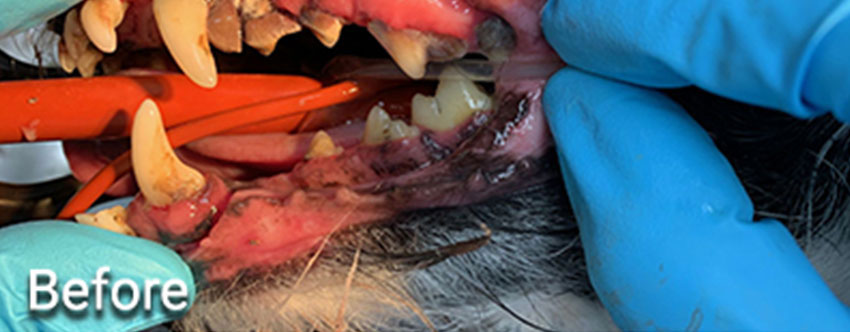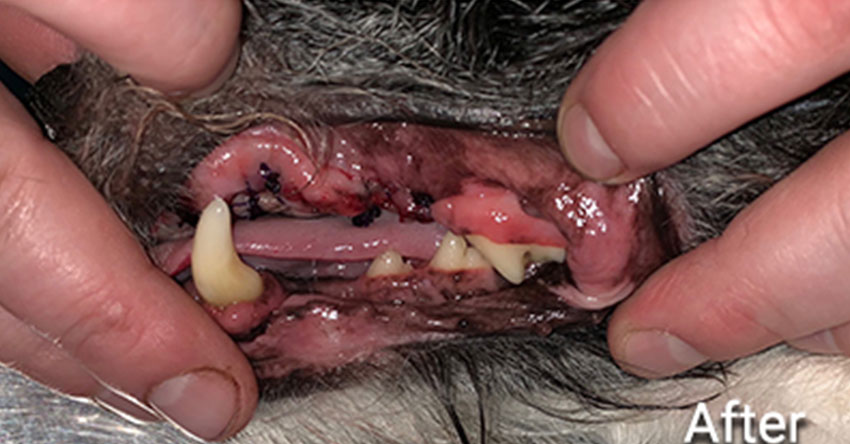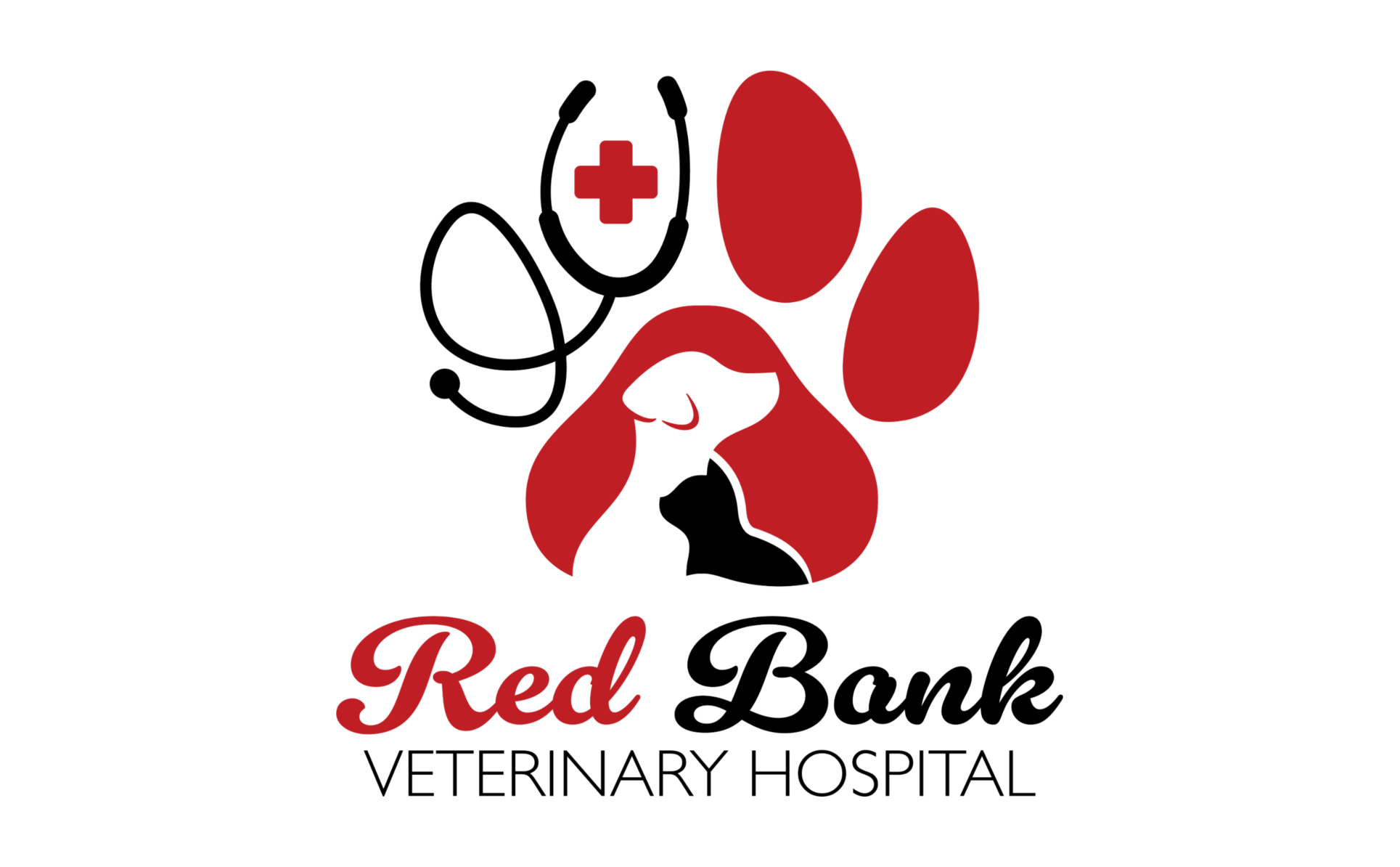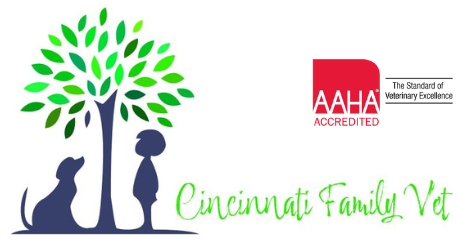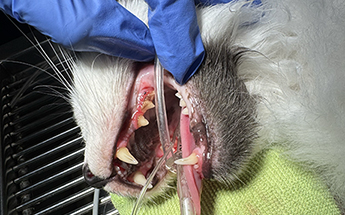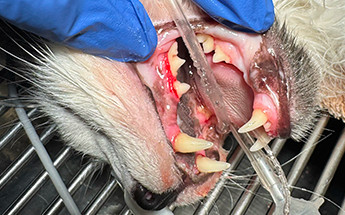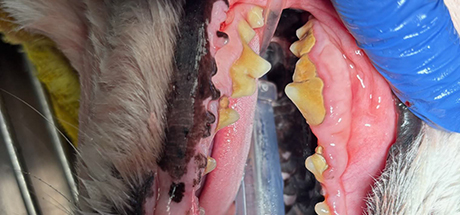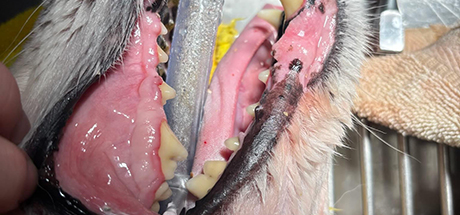We Offer Complete Pet Dental Care
You brush your teeth every day to keep your mouth clean and healthy. Would you be surprised to learn that your pet requires the same treatment? Pet dental care is often overlooked by pet owners, not due to a lack of compassion, but because our pets tend to hide their oral health issues.
Your pet's oral health is just as important to us as their overall health. If your pet has an unhealthy mouth, they're likely to be unhealthy in other aspects as well. Therefore, we recognize your pet's oral problems and guide you on how to manage their dental care.
Professional Cat and Dog Dental Services
Pets use their mouths not just for eating, but also for playing and exploring the world around them. Therefore, it's important that they receive the most comprehensive and high-quality dental care possible.
A complete dental prophylaxis procedure at our hospital includes:
- Preoperative blood work and exam to make sure your pet is healthy before being sedated for their procedure
- General anesthesia to allow for a safe and pain-free dental prophy (cleaning)
- Scaling each tooth to remove calculus and harmful bacteria from above and below the gumline
- Digital dental X-rays before and after the dental if extractions are needed
- Gingivectomy to remove diseased gum tissue and eliminate pockets between the teeth and gums
- Extractions to remove loose, broken, and/or decaying teeth
- Appropriate antibiotics and pain relief medications
- Surgical suturing of gums after extractions
Common Symptoms of Gum Disease
Gum disease affects a large number of cats and dogs, but it can be prevented with regular dental care. Common signs we observe in pets with varying stages of gum disease include:
- Bad breath
- Yellow/brown teeth
- Teeth that are loose or broken
- Red, swollen, and/or bleeding gums
- Excessive drooling
- Difficulty eating and chewing
- Decreased appetite
- Decreased activity, less interest in chew toys
- Swelling around the face, rubbing or pawing at the face/mouth.
Bad breath is not normal for pets. If you notice any of the above signs, please let us know at (513) 242-2141 so we can examine your pet and help you determine the best treatment for their needs.
At-Home Care Options
Along with our professional pet dental care services, we also offer forms of treatment you can use at home. At-home care helps maintain your pet's teeth and gums between cleanings and reduces plaque and tartar buildup. Supplement dental care at home with toothbrushes and toothpaste, Hill's T/D (tartar control diet), and dental chews.
If you need help brushing your pet's teeth, let us know so we can provide a demonstration. Daily brushing is ideal for removing plaque buildup and preventing the onset of gum disease. However, if brushing is not an option, a tartar control diet and dental chews can be just as helpful.
Visit our Helpful Links page to learn more about the Veterinary Oral Health Council's list of accepted products for feline and canine dental health care. Including:
- Dental Diets
- Rawhide Chews
- Edible Chew Treats
- Water Additives, Oral Gels & Sprays, Toothpaste
- Toothbrushes & Wipes
Before and After
Case 1
This is the mouth of a 2-year-old, well-cared-for mixed-breed dog (before and after a dental cleaning) that had significant tartar and mild gum disease, as well as an injured tooth that required extraction.
With good care and routine dental care, this patient will maintain a healthy mouth and fresh breath for the rest of his life.
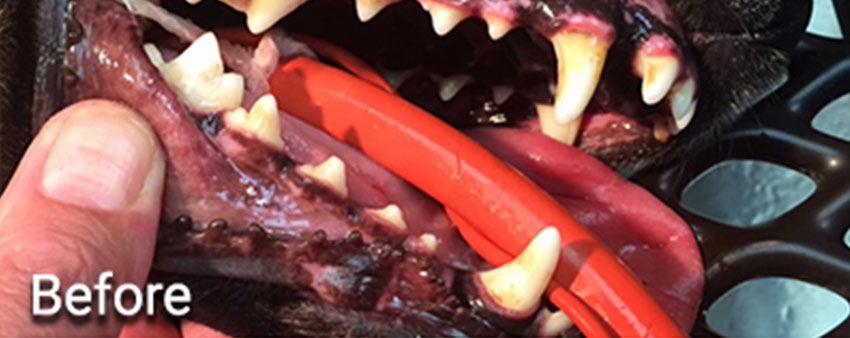
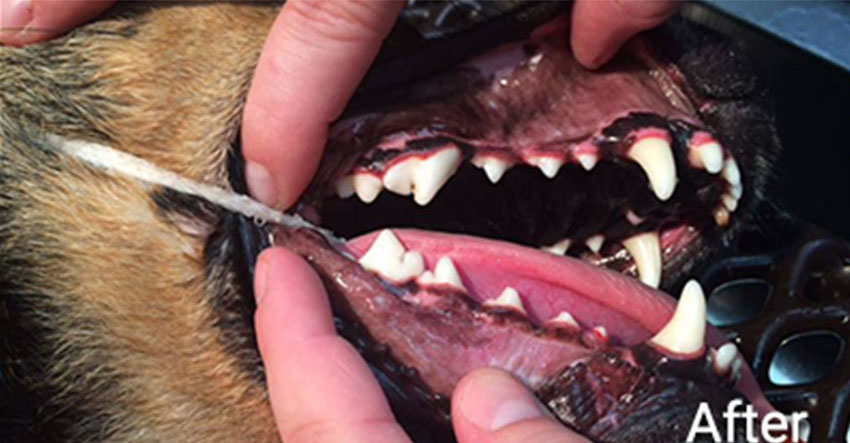
Case 2
This is the mouth of a 12-year-old Terrier with severe dental tartar and periodontal disease. He had his teeth cleaned a few years ago but has not received dental care since then.
We removed several badly infected teeth and sutured his gums, and he will be much healthier and his mouth will not be painful. We advised his owners that he will most likely need to have his teeth cleaned at least once a year in the future because his periodontal disease has been so painful.
